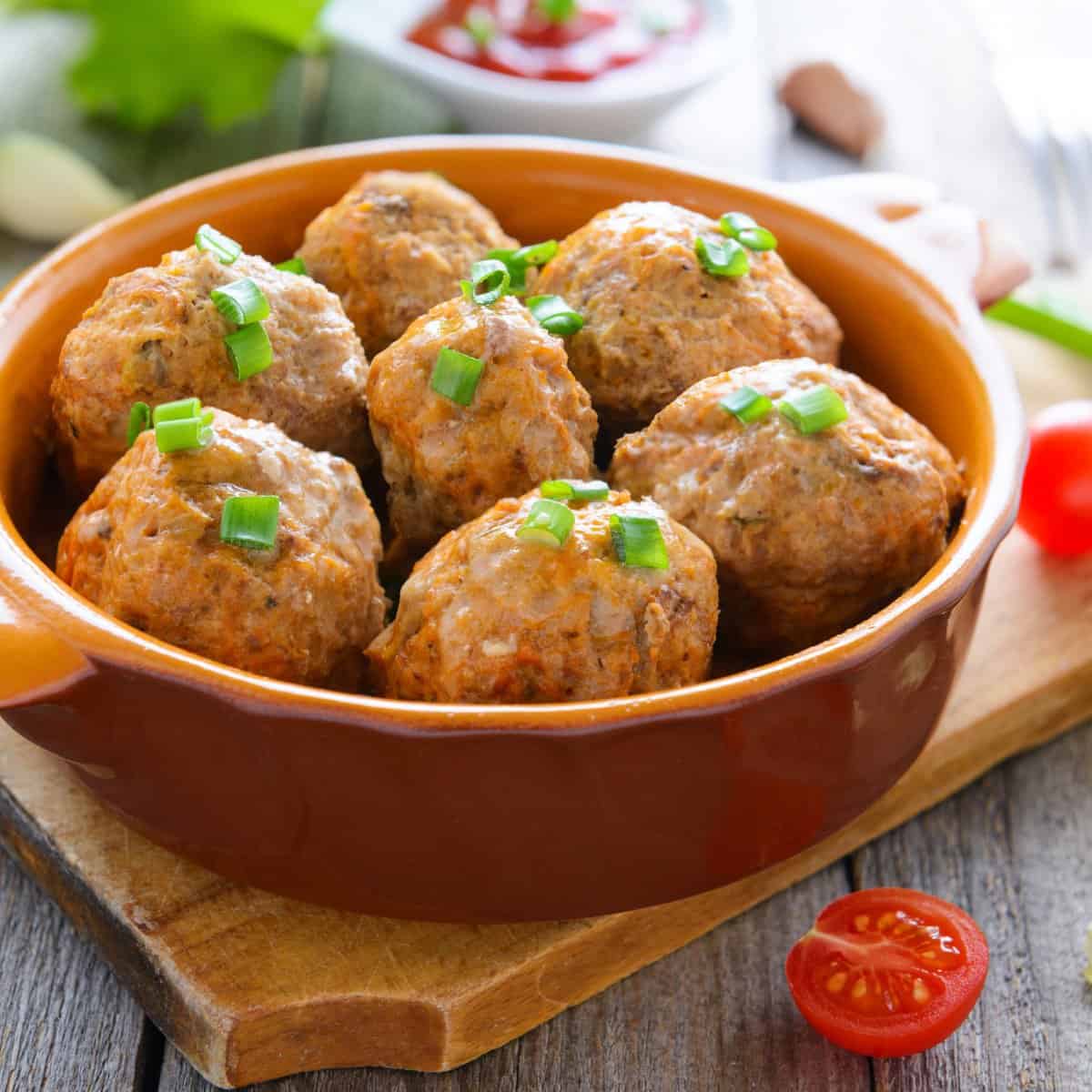Ceramic Cookware: How Heat Resistant Is It Really?
Is ceramic cookware the best material for cooking? It’s popular for its non-stick properties and easy cleanup, but is it the best material? Is it better than stainless steel, cast iron, or aluminum? Let’s look at the pros and cons.
I’ll also share some tips on how to take care of your ceramic cookware so it lasts longer and doesn’t crack.


Check out our new cookbook
Bitemybun's family recipes with complete meal planner and recipe guide.
Try it out for free with Kindle Unlimited:
Read for freeIn this post we'll cover:
Why Ceramic Cookware is a Great Choice for Your Cooking Needs
Ceramic cookware is a type of cooking material that is made from a mixture of clay and other natural materials. This mixture is then fired at high temperatures to create a smooth and non-porous finish that is excellent for cooking. Ceramic cookware is available in a variety of designs and sets from different brands, making it a popular alternative to traditional metal utensils.
Misconceptions about Ceramic Cookware
There are some misconceptions about ceramic cookware that need to be addressed:
- Not all ceramic cookware is created equal: Some ceramic cookware sets may contain harmful chemicals, so it’s important to choose a reputable brand.
- May not perform well on high heat: Ceramic cookware may not perform as well on high heat as other materials such as stainless steel or cast iron.
- May not be as heavy as other materials: Some people may prefer heavier cookware for certain dishes.
How to Properly Use and Store Ceramic Cookware
To get the most out of your ceramic cookware, it’s important to use and store it properly:
- Use low to medium heat: Ceramic cookware performs best on low to medium heat settings.
- Avoid sudden temperature changes: Do not place hot ceramic cookware in cold water or vice versa, as this can cause cracking.
- Use wooden or silicone utensils: Metal utensils can scratch the surface of ceramic cookware.
- Store properly: Store ceramic cookware with a paper towel or cloth between each dish to prevent scratching.
Can Ceramic Cookware Withstand High Temperatures?
Ceramic cookware is a popular choice for cooking enthusiasts due to its durability and versatility. One of the most important factors to consider when choosing cookware is its ability to withstand high temperatures. Ceramic cookware is known for its heat resistance, making it a great option for cooking at high temperatures.
Temperature Limits for Ceramic Cookware
Ceramic cookware can withstand temperatures up to 450-500 degrees Fahrenheit, making it suitable for most cooking methods. However, it’s important to note that some ceramic cookware may have lower temperature limits, so it’s always best to check the manufacturer’s instructions before using it.
Ceramic Cookware on Different Stovetops
Ceramic cookware is compatible with most stovetops, including gas, electric, and induction. However, it’s important to note that some ceramic cookware may not be suitable for use on glass stovetops, as it can scratch the surface.
How Hot Can Ceramic Cookware Get?
Ceramic cookware is designed to withstand high temperatures, making it an excellent choice for cooking food at extreme heat. The materials used in ceramic cookware are tough and strong, making them highly resistant to cracking or breaking under high heat.
The Safety of Ceramic Cookware
Ceramic cookware is sold in many different types and brands, but all are designed to resist heat and maintain safety while cooking. Unlike electrical cookware, ceramic dishes do not emit any harmful fumes or chemicals when heated, making them a safer choice for cooking.
Why Ceramic Cookware is a Great Addition to Your Kitchen
If you’re still on the fence about whether or not to invest in ceramic cookware, here are some reasons why you should consider it:
- Higher Quality: Ceramic cookware is dedicated to quality, meaning that companies who produce it are highly invested in making sure their products are top-notch.
- Variety: Ceramic cookware comes in a variety of colors and finishes, allowing you to add some personality to your kitchen.
- Ability to Handle Different Dishes: Ceramic cookware can handle a variety of dishes, from stovetop to oven, making it a versatile addition to your kitchen.
- Better for Your Dishes: Ceramic cookware prevents dishes from sticking, meaning you won’t have to worry about damaging your favorite dish.
- Power to Prevent Damage: Ceramic cookware is highly resistant to scratches and damage, meaning it will last longer than other products on the market.
- Easy to Find: Ceramic cookware is widely available, meaning you won’t have to go out of your way to find it.
- Lower Cost: While some ceramic cookware can be more expensive, there are plenty of affordable options on the market.
How Ceramic Cookware is Produced
Ceramic cookware is made by firing clay at high temperatures, which allows it to become fully hardened and durable. This means that ceramic cookware is made from natural materials and requires less energy to produce than other materials like stainless steel. The production process also allows for a smoother finish, which prevents food from sticking and makes cleaning easier. Additionally, the firing process means that ceramic cookware is highly resistant to scratches and damage, meaning it will last longer than other products on the market.
The Main Differences Between Ceramic and Steel Cookware
While both ceramic and steel cookware have their benefits, there are some key differences between the two:
- Weight: Ceramic cookware is significantly lighter than steel cookware, making it easier to handle and maneuver in the kitchen.
- Heat Distribution: Ceramic cookware distributes heat evenly, while steel cookware can have hot spots that can burn your food.
- Non-Stick Surface: Ceramic cookware has a smooth finish that prevents food from sticking, while steel cookware requires oil or butter to prevent sticking.
- Damage Prevention: Ceramic cookware is highly resistant to scratches and damage, while steel cookware can be easily scratched or dented.
- Cost: While some ceramic cookware can be more expensive, there are plenty of affordable options on the market. Steel cookware can be more expensive, especially if you’re looking for high-quality options.
Keeping Your Ceramic Cookware in Top Shape
Ceramic cookware is an excellent choice for cooking because it is non-reactive, meaning it won’t change the taste of your food. However, it does require a little extra care compared to traditional metal utensils. Here’s why:
- Ceramic cookware is made of delicate materials that can easily chip or crack if not handled properly.
- If left dirty for too long, food can become stuck to the surface, making it harder to clean.
- Unlike metal, ceramic cookware can’t handle extreme temperature changes, which can cause significant damage.
Additional Tips
Here are a few additional tips to help you keep your ceramic cookware in top shape:
- Avoid using sharp utensils that can scratch the surface.
- Spend a little extra time preparing your recipe to prevent food from sticking to the surface.
- Use a low to medium heat setting when cooking with ceramic cookware. It heats up quickly and retains heat well, so you don’t need to use high heat.
- Pure ceramic cookware is generally a bit more expensive than other types, but the quality and result are worth it.
- Mixing different types of ceramic cookware requires a bit of research to ensure they work well together.
- Ceramic cookware is ideal for cooking food with fat, as it helps to distribute the heat evenly.
- Keeping your ceramic cookware smooth and clean will make it easier to cook with and prevent food from sticking.
Conclusion
Ceramic cookware is a great choice for cooking needs, especially ceramic cookware type. Ceramic is a great material for heat resistance and non-porous surfaces, making it a great choice for cooking food. Plus, it’s much lighter than other materials, so it’s easy to handle. So, if you’re looking for a new set, consider ceramic cookware. You won’t be disappointed!
Check out our new cookbook
Bitemybun's family recipes with complete meal planner and recipe guide.
Try it out for free with Kindle Unlimited:
Read for freeJoost Nusselder, the founder of Bite My Bun is a content marketer, dad and loves trying out new food with Japanese food at the heart of his passion, and together with his team he's been creating in-depth blog articles since 2016 to help loyal readers with recipes and cooking tips.
